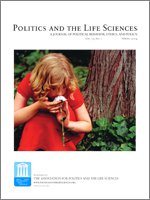In this plenary talk given at the annual meeting of the Association for Politics and the Life Sciences at Texas Tech University last October, Professor Sophal Ear, then of the U.S. Naval Postgraduate School in Monterey, discussed his research on the political economy of emerging infectious disease (EID) surveillance programs. His talk reviews lessons learned for U.S. military medical research laboratories collaborating with developing countries and is comprised of three case studies: Cambodia (U.S. Naval Area Medical Research Unit 2 or NAMRU-2), Indonesia (also NAMRU-2 in the context of H5N1 or Highly Pathogenic Avian Influenza),1 and Mexico (that country's handling of A/H1N1 or Swine Flu in 2009).2 Professor Ear's research provides policymakers with tools for improving the effectiveness of new or existing EID surveillance programs. His work also offers host countries the opportunity to incorporate ideas, provide opinions, and debate the management of political and economic constraints facing their programs. In this analysis, constraints are found for each case study and general recommendations are given for improving global emerging infectious disease surveillance across political, economic, and cultural dimensions.
How to translate text using browser tools
1 December 2014
Towards effective emerging infectious disease surveillance
Sophal Ear
ACCESS THE FULL ARTICLE
It is not available for individual sale.
This article is only available to subscribers.
It is not available for individual sale.
It is not available for individual sale.

Politics and the Life Sciences
Vol. 33 • No. 1
Spring 2014
Vol. 33 • No. 1
Spring 2014




